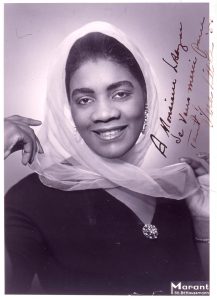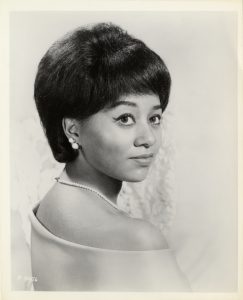Podcast: Play in new window | Download (Duration: 1:02:32 — 66.7MB) | Embed
Subscribe: Spotify | TuneIn | RSS | More
On Monday June 3, 2024, a new memorial plaque commemorating African American mezzo-soprano Vera Little (10 December 1928 – 24 October 2012) was unveiled at her former residence in Berlin’s Charlottenburg neighborhood. Little is remembered today as the first Black singer to appear as Carmen on the stage of Berlin’s Städtische Oper, soon to be renamed the Deutsche Oper Berlin. At the time of that appearance there were cries and protests about her hiring instead of an “equally capable” German singer. And yet, when Little returned to the stage of the Deutsche Oper in 1963, now singing the role of Amneris, she became one of the central singers in the ensemble of that company, being named a Kammersängerin there in 1970. This episode examines the life and career of Vera Little, from her birth in Memphis through her decades-long residence in Berlin. It is a fascinating, circuitous path, and one which is documented only sporadically on recording. On this episode, I play excerpts from Little’s only solo recording, a 1957 Decca records release of spirituals recorded in France, as well as her recordings on Deutsche Grammophon of Der junge Lord by Hans Werner Henze, and Richard Strauss’s Daphne. In addition, there are live recordings of Little singing Baba the Turk in Stravinsky’s The Rake’s Progress, Giovanna Seymour in Donizetti’s Anna Bolena, and Beroe in Henze’s Die Bassariden, which Little created in its 1966 world premiere at the Salzburg Festival. Vera Little was also an author, who published four books of memoir and poetry, and just yesterday I obtained a copy of her first book, 1978’s Tears in My Eyes, from which I read a number of excerpts. I had known Little’s name for decades, but had never fully explored her legacy before. It is here (and on an accompanying bonus episode) my honor and privilege to present a great (and somewhat forgotten) artist for your delectation. Today’s vocal guest stars include Kostas Paskalis, Hilde Güden, Anneliese Rothenberger, and Teresa Żylis-Gara.
Countermelody is a podcast devoted to the glory and the power of the human voice raised in song. Singer and vocal aficionado Daniel Gundlach explores great singers of the past and present focusing in particular on those who are less well-remembered today than they should be. Daniel’s lifetime in music as a professional countertenor, pianist, vocal coach, voice teacher, and journalist yields an exciting array of anecdotes, impressions, and “inside stories.” At Countermelody’s core is the celebration of great singers of all stripes, their instruments, and the connection they make to the words they sing. By clicking on the following link (https://linktr.ee/CountermelodyPodcast) you can find the dedicated Countermelody website which contains additional content including artist photos and episode setlists. The link will also take you to Countermelody’s Patreon page, where you can pledge your monthly support at whatever level you can afford.




